 | | | Summer is a time for reading. Our “Books” section in this June issue of the RCC Campus Dispatch features reviews by two RCC Stanback Fellows from Duke University. Lucy Goldman offers a fresh take on Sy Montgomery’s now classic, The Soul of An Octopus, while Emma Brentjens shows some sympathy to often reviled serpents in Nicolette L. Cagle Saving Snakes: Snakes and the Evolution of a Field Biologist. Yes. You are getting an animal theme here. In his review essay, “Rachel Carson and Animal Rights?” RCC’s own Rachel Carson scholar, Bob Musil, explores the surprising lineage from Carson, who served on the Board of the Animal Welfare Institute, to contemporary writers, Ed Yong, An Immense World, and Martha Nussbaum, Justice for Animals, who make elegant cases for ending humanity’s sense of superiority over “beasts” and for ending our slaughter and cruelty to them. 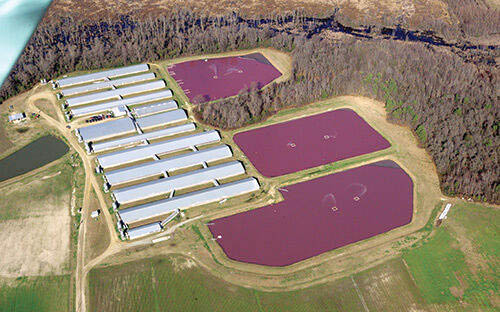 When not reading, RCC’s Stanback Fellows have been busy as summer begins going to Capitol Hill and environmental demonstrations, carrying out investigative reports on corporate greenwashing, on the effects of CAFO pollution in North Carolina on the health of nearby environmental justice communities, and far more. Look for more reports and writing from these young environmental leaders (nine from Duke and one from Yale) in the next RCC Campus Dispatch. When not reading, RCC’s Stanback Fellows have been busy as summer begins going to Capitol Hill and environmental demonstrations, carrying out investigative reports on corporate greenwashing, on the effects of CAFO pollution in North Carolina on the health of nearby environmental justice communities, and far more. Look for more reports and writing from these young environmental leaders (nine from Duke and one from Yale) in the next RCC Campus Dispatch.
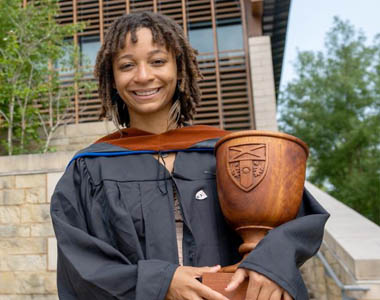 You’ll see why these extraordinary campus environmentalists bring such talent to the RCC as we spotlight three of our RCC Campus Network universities – Yale, Duke, and Michigan — and environmental professors, students, research, and teaching there. But, of course, campuses nationwide continue to be sources of critical work on climate justice, despite continuing right-wing attacks on DEI and “woke” subject matter. In fact, trustees at Ohio State are already fighting back against the legislature’s intrusion into academic freedom, while at California State University at Chico, faculty are updating and connecting climate curriculum in the face of horrendous wildfires that have come within fifteen miles of campus and forced the campus to close for three weeks. You’ll see why these extraordinary campus environmentalists bring such talent to the RCC as we spotlight three of our RCC Campus Network universities – Yale, Duke, and Michigan — and environmental professors, students, research, and teaching there. But, of course, campuses nationwide continue to be sources of critical work on climate justice, despite continuing right-wing attacks on DEI and “woke” subject matter. In fact, trustees at Ohio State are already fighting back against the legislature’s intrusion into academic freedom, while at California State University at Chico, faculty are updating and connecting climate curriculum in the face of horrendous wildfires that have come within fifteen miles of campus and forced the campus to close for three weeks. There are far more hopeful signs than ever of progress on American campuses, especially in the realms of environment, environmental health, and climate justice make it into the headlines of the mainstream media. We welcome any environmental news, research, events, or original writing from your campus. And, as you dig into your summer reading and plan for the new academic year, consider inviting RCC environmental experts to campus for lectures, workshops or events. We would love to meet you in person and connect your college or university to the RCC Campus Network. See "Plan Your Visits" at the end of this issue. — Bob Musil, President & CEO and Mackenzie Bodman, Associate Director, Civic and Campus Engagement. | | | | | | | |  Bob Musil is the President & CEO of the Rachel Carson Council and author of Rachel Carson and Her Sisters: Extraordinary Women Who Have Shaped America’s Environment (Rutgers, 2016) and Washington in Spring: A Nature Journal for a Changing Capital (Bartleby, 2016). He is also the editor of the forthcoming annotated edition from Rutgers University Press of Rachel Carson’s Under the Sea-Wind with his Introduction, updated marine science, and historic and contemporary illustrations and photographs. Bob Musil is the President & CEO of the Rachel Carson Council and author of Rachel Carson and Her Sisters: Extraordinary Women Who Have Shaped America’s Environment (Rutgers, 2016) and Washington in Spring: A Nature Journal for a Changing Capital (Bartleby, 2016). He is also the editor of the forthcoming annotated edition from Rutgers University Press of Rachel Carson’s Under the Sea-Wind with his Introduction, updated marine science, and historic and contemporary illustrations and photographs. 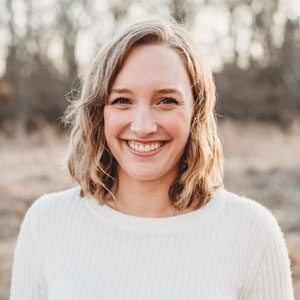 Mackenzie Bodman is the Associate Director of Civic and Campus Engagement for the Rachel Carson Council. An advocate for environmental justice, climate change and policy, Mackenzie works to combine science, justice, and policy to advocate for imaginative solutions to environmental challenges. Mackenzie Bodman is the Associate Director of Civic and Campus Engagement for the Rachel Carson Council. An advocate for environmental justice, climate change and policy, Mackenzie works to combine science, justice, and policy to advocate for imaginative solutions to environmental challenges. | | | | | | | | Finding the Roots of Transformative Justice From a young age, Kroon Cup winner Jess Jones realized that sustainable land stewardship could help heal what ails the environment and humanity. When she wasn’t in class, or working in Yale Forests, you could find Jess Jones ’23 MEM at Kroon Courtyard — in the garden. Jones spent countless hours there planting, weeding, and taking care of vegetables and flowers as Kroon Forest Garden Steward. She also organized workshops, guided tours, bird walks, teas, and even a mushroom inoculation event. | | | | | | | | Advances in Technology are Driving Popularity of EVs New research led by the Yale School of the Environment demonstrates that improvements in battery range and costs is behind the rise of electric vehicle sales. Transportation accounts for roughly one-third of U.S. greenhouse gas emissions, and adoption of electric vehicles are seen by many experts in government and the private sector as a vital tool in efforts to reduce carbon emissions. Roughly a decade ago, EVs accounted for a tiny fraction of overall car sales. As of March 2023, they make up 7% of new sales. | | | | | | | | Duke Will Cover Tuition For Carolina Students From Low- and Middle-income Households Beginning in fall 2023, Duke University will cover the tuition of undergraduate students from North Carolina and South Carolina whose families earn $150,000 or less a year. This includes students from military families whose legal residence is in the Carolinas, regardless of where they are stationed. The private nonprofit university in North Carolina will also provide financial assistance to cover housing, food and other expenses for residents of the two states whose households make $65,000 or less annually. | | | | | | | | Coastal Carolina Riverwatch's Water Quality Lab has moved to Pivers Island The need to fill gaps in water quality protection services has increased tremendously, but the funds to grow that work are not always easy to come by. With that said, it goes with out saying that CCRW is always looking for ways to improve efficiency. When we found ourselves needing additional lab space, we found a home and partnership at the Duke University Marine Lab (DUML) in Beaufort, NC and the value goes beyond the precious funds we are able to save by having access to this facility. | | | | | | | | The Earth is Awash in Plastic Pollution It’s showing up nearly everywhere these days, from 36,000 feet below the ocean’s surface in the Mariana Trench, the deepest point on Earth, to 29,000 feet above sea level on Mt. Everest, the highest peak. It litters our landscapes, contaminates our soil, overflows our landfills, and is accumulating at alarming rates in our rivers and oceans. And it’s not just our environment and the animals that live there that are at risk. Humans face growing risks, too. | | | | | | | | Lecturer Shakara Tyler: Black Food Sovereignty is a Real Possibility in Detroit Shakara Tyler grew up in Philadelphia—a city, like most urban areas, that isn’t known for farming. But a deep-rooted interest in agriculture and a thirst to recover the stories of Black farmers have led her to research and document Black agrarianism and agro-ecology. A lecturer in the University of Michigan School for Environment and Sustainability (SEAS), Tyler has shown how the Black farming community plays an important role in food justice and food sovereignty including in the city of Detroit. | | | | | | | | Ohio Staters Grapple With Bill That Stifles Climate Speech “You can say gravity isn’t true, but if you step off the cliff, you’re going down.” Keely Fisher chose to pursue her Ph.D. at Ohio State University because she wanted to learn about climate change from a world-class faculty. Now one year into her program, she wonders if she belongs here. The problem has nothing to do with Ohio State and everything to do with the Ohio General Assembly and a proposal that would regulate higher education. | | | | | | | | | | New Center to Coordinate and Foster Oakland University’s Sustainability Efforts With the goals of deepening its impact as a steward of the region’s resources and elevating its role as an advocate for sustainability, Oakland University will establish the OU Center for Environmental Sustainability and Ethics. A $1M gift from the Oakland University Credit Union provides seed money in what university leaders expect will be the launch of OU-based sustainability initiatives. | | | | | | | | The Climate-Conscious College Faculty members across disciplines are updating curricula in ways that inspire action, not just fear. For California State University at Chico, the message that climate change was too big to be contained in a single department or program was delivered in plumes of choking smoke from a wildfire raging 15 miles away. The 2018 Camp Fire, which killed 85 people, displaced more than 300 people from the university community, and canceled classes at Chico State for three weeks, left no doubt in the minds of students like Sofia Lepore. | | | | | | | | Universities Get Big Bucks, Climate Does Not. But Recent Gifts Show Growing Crossover How does climate philanthropy compare to university fundraising? It’s like apples and asteroids. Three universities — Harvard, Stanford and Johns Hopkins — raised more money in fiscal year 2021 than every foundation in the entire world spent on climate mitigation that calendar year, with that trio alone pulling in $3.7 billion versus the roughly $3 billion foundations spent on the climate emergency. | | | | | | | | Biden Vetoes GOP-led Effort to Strike Down Student Loan Forgiveness Program In a statement on Wednesday, the president said the resolution — which the Senate approved on a 52-46 vote Thursday under the Congressional Review Act, a week after the House passed the measure — would have kept millions of Americans from receiving “the essential relief they need as they recover from the economic strains associated with the COVID-19 pandemic.” | | | | | | | | Inflation-adjusted Salaries For Full-time Faculty Fell 7.5% During the Pandemic AAUP has tracked faculty wages for decades, but its new report reflects how they have been influenced by the pandemic’s economic fallout and elevated inflation. Average full-time faculty salaries actually jumped between fall 2021 and fall 2022 by more than 4%, the greatest single-year increase since 1990-91. But inflation outpaced that growth, meaning faculty whose salaries stagnated or increased by a small amount had less spending power. | | | | | | | | Octopus Love The Soul of an Octopus: A Surprising Exploration into the Wonder of Consciousness by Sy Montgomery 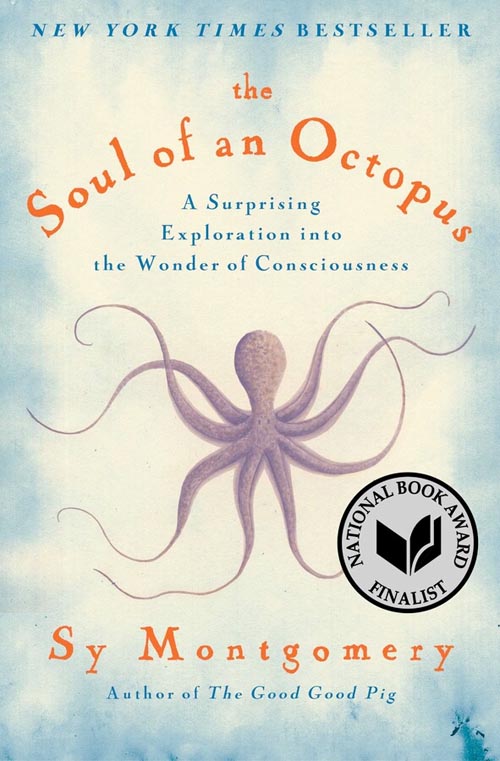 The Soul of an Octopus by Sy Montgomery is a riveting account of one naturalist’s deep dive into the world of the octopus. Montgomery explores octopus consciousness through developing intimate relationships with several octopuses at the New England Aquarium. She takes readers along to her weekly visits behind the scenes of the octopus exhibit, as she develops trust, recognition, and genuine connection with these intelligent invertebrates. The Soul of an Octopus by Sy Montgomery is a riveting account of one naturalist’s deep dive into the world of the octopus. Montgomery explores octopus consciousness through developing intimate relationships with several octopuses at the New England Aquarium. She takes readers along to her weekly visits behind the scenes of the octopus exhibit, as she develops trust, recognition, and genuine connection with these intelligent invertebrates.
Montgomery also describes her mesmerizing encounters with octopuses, both captive and wild, from New England to Seattle, the Caribbean, French Polynesia, and beyond. Along the way, Montgomery’s connection to the octopus enhances her fascination with the ocean and deepens her reverence for the natural world. She recounts thrilling stories from her explorations of aquatic species demonstrating emotions and tendencies once thought to be uniquely human. Montgomery observes, for instance, how octopuses even have the ability to bring people together. She explains that caring for octopuses at the New England Aquarium allowed her to foster lifelong bonds with the aquarium staff and volunteers. She speaks often of her powerful connection with the other octopus caretakers, formed through a shared love and respect for this incredible creature. She also wonders at the ability of the octopus to temporarily alleviate human suffering and to provide an escape from reality for those who need it most. Montgomery and her fellow octopus lovers also wrestle with the concept of captivity and the moral ground for taking an animal from the wild to place it on display. Read more RCC Stanback Climate Justice Fellow – Lucy Goldman
Lucy Goldman is a rising junior at Duke University studying Public Policy and Computer Science. | | | | | | The Serpent Beguiled Me Nicolette L. Cagle, Saving Snakes: Snakes and the Evolution of a Field Naturalist (University of Virginia Press, 2023)  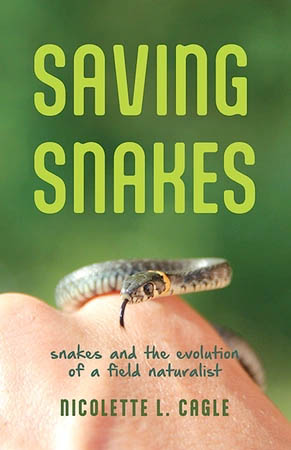 Ever since the Garden of Eden, humans have reviled snakes. Ask almost anyone which animals they fear, or just get the creeps thinking about; snakes will top the ranks alongside spiders. The results have often been disastrous for snakes. That’s why Duke professor and ecologist Nicolette Cagle sets out to help us understand why we should admire snakes as she does and how they have shaped her entire career and understanding of natural history. In Saving Snakes: Snakes and the Evolution of a Field Naturalist, Cagle tells the story of this underappreciated reptile through the lens of her own life and experiences in the field, like meeting the gaze of a Black Racer in the coastal plain of North Carolina or the fangs of a Northern Watersnake on Lake Michigan. Cagle’s easy-going, relatable voice and clear explanations of complex scientific topics — like how snake venom works or her snake surveys in north-central Illinois — make this intimidating subject as pleasant to digest as a mouse is for a Corn Snake. Ever since the Garden of Eden, humans have reviled snakes. Ask almost anyone which animals they fear, or just get the creeps thinking about; snakes will top the ranks alongside spiders. The results have often been disastrous for snakes. That’s why Duke professor and ecologist Nicolette Cagle sets out to help us understand why we should admire snakes as she does and how they have shaped her entire career and understanding of natural history. In Saving Snakes: Snakes and the Evolution of a Field Naturalist, Cagle tells the story of this underappreciated reptile through the lens of her own life and experiences in the field, like meeting the gaze of a Black Racer in the coastal plain of North Carolina or the fangs of a Northern Watersnake on Lake Michigan. Cagle’s easy-going, relatable voice and clear explanations of complex scientific topics — like how snake venom works or her snake surveys in north-central Illinois — make this intimidating subject as pleasant to digest as a mouse is for a Corn Snake. Cagle makes it evident that ecology is one of the most interdisciplinary fields. Saving Snakes not only details Cagle’s personal and career journey, but also follows the history of changing land use in the United States and humans’ relationship with the natural environment as they relate to snakes. Cagle provides rich context for the sites and people she describes, including histories of Indigenous land stewardship, forceful displacement of Indigenous peoples by European colonizers, and the legacy of slavery in the southeastern U.S. For Cagle, such content and context is crucial to understanding the ecology of these regions. Read more RCC Stanback Presidential Fellow – Emma Brentjens Emma Brentjens is a Master of Environmental Management student at Duke University studying Ecosystem Science and Conservation and Community-based Environmental Management. | | | | | | Rachel Carson and Animal Justice? Ed Yong, An Immense World: How Animal Senses Reveal the Hidden Realms Around Us (Random House, 2023) Martha C. Nussbaum, Justice for Animals: Our Collective Responsibility (Simon & Schuster, 2022) 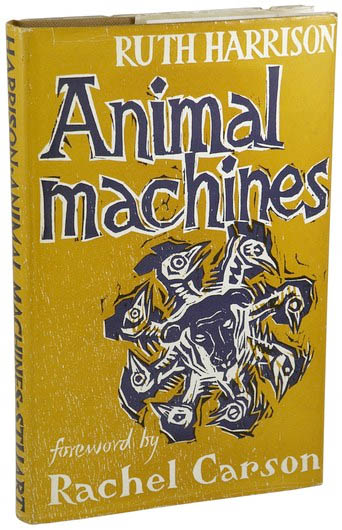 Rachel Carson’s beautifully-written first book, Under the Sea-Wind, written in the 1930s, challenged conventional science and popular attitudes about the world around us in two fundamental ways. It showed us life underneath the familiar surf and waves of the seashore as seen and felt by the creatures who live there; Carson shifted our human-centered view of the planet to one in which the lives of birds, mackerel, eels, octopuses, tuna, sharks are as important as are our own. Rachel Carson’s beautifully-written first book, Under the Sea-Wind, written in the 1930s, challenged conventional science and popular attitudes about the world around us in two fundamental ways. It showed us life underneath the familiar surf and waves of the seashore as seen and felt by the creatures who live there; Carson shifted our human-centered view of the planet to one in which the lives of birds, mackerel, eels, octopuses, tuna, sharks are as important as are our own.
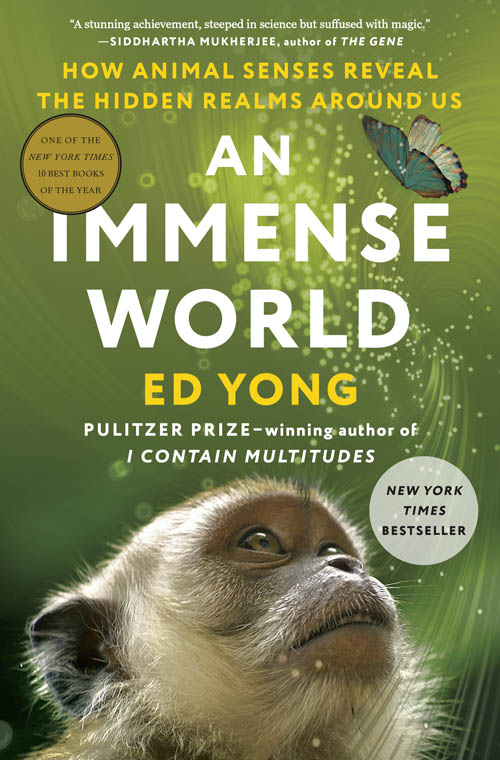 We need, she believes, to exercise a sense of wonder, imagination, awe, and a good deal of humility, to understand and to feel that the world was not made for us alone. In Under the Sea-Wind, we humans are the dangerous species, only seen through the seines, fishnets, trawlers, that entangle, strangle, and kill the many fish and other species we have come to identify with.Rachel Carson also believed and wrote that we need to act to protect the life of the animals who share our world, to change our whole approach to producing food. In her searing Introduction to Animal Machines, Ruth Harrison’s 1964 pioneering exposé of factory farming, Carson said, “The modern world worships the gods of speed and quantity, and of the quick and easy profit, and out of this idolatry monstrous evils have arisen.” The monstrous evils of factory farms and cruelty to animals have been decried often, but they undergird the approach to shifting our values, society, and laws in two important books Carson would have welcomed as worthy heirs to her legacy. Ed Yong’s An Immense World and Martha Nussbaum’s Justice for Animals bring Carson’s ground-breaking science and empathetic ethics up to the present — a time when the horrors she described in early factory farms are now far worse, far more pervasive. The same is true for commercial fishing, trophy hunting and poaching, and the escalating damaging effects on all species of human-induced climate change. Read more We need, she believes, to exercise a sense of wonder, imagination, awe, and a good deal of humility, to understand and to feel that the world was not made for us alone. In Under the Sea-Wind, we humans are the dangerous species, only seen through the seines, fishnets, trawlers, that entangle, strangle, and kill the many fish and other species we have come to identify with.Rachel Carson also believed and wrote that we need to act to protect the life of the animals who share our world, to change our whole approach to producing food. In her searing Introduction to Animal Machines, Ruth Harrison’s 1964 pioneering exposé of factory farming, Carson said, “The modern world worships the gods of speed and quantity, and of the quick and easy profit, and out of this idolatry monstrous evils have arisen.” The monstrous evils of factory farms and cruelty to animals have been decried often, but they undergird the approach to shifting our values, society, and laws in two important books Carson would have welcomed as worthy heirs to her legacy. Ed Yong’s An Immense World and Martha Nussbaum’s Justice for Animals bring Carson’s ground-breaking science and empathetic ethics up to the present — a time when the horrors she described in early factory farms are now far worse, far more pervasive. The same is true for commercial fishing, trophy hunting and poaching, and the escalating damaging effects on all species of human-induced climate change. Read more Bob Musil - President & CEO of the Rachel Carson Council Bob Musil is the President & CEO of the Rachel Carson Council and author of Rachel Carson and Her Sisters: Extraordinary Women Who Have Shaped America’s Environment (Rutgers, 2016) and Washington in Spring: A Nature Journal for a Changing Capital (Bartleby, 2016). He is also the editor of the forthcoming annotated edition from Rutgers University Press of Rachel Carson’s Under the Sea-Wind with his Introduction, updated marine science, and historic and contemporary illustrations and photographs. | | | | | | Plan Your 2023 Campus Events with RCC now! RCC prides itself on its National Campus Network of 65 colleges and universities. We are working to engage faculty members, students, and administrators in our efforts for a more just and sustainable world. With our growing fellowship program, our presence on campuses across the country has never been greater. Contact RCC today to bring our staff to your campus for lectures, workshops, or meetings to help find the best ways to engage your faculty and students in the efforts against climate change, environmental justice, and the work of the Rachel Carson Council. Campus Visits with RCC President, Dr. Robert K. Musil  RCC President & CEO, Dr. Robert K. Musil, a national leader in climate change, environmental justice and health is again available to book for in-person campus speaking events! Musil has been called “informative, challenging and inspirational all at once.” He is “motivational” with “intellectual depth” and “extraordinary impact.” RCC President & CEO, Dr. Robert K. Musil, a national leader in climate change, environmental justice and health is again available to book for in-person campus speaking events! Musil has been called “informative, challenging and inspirational all at once.” He is “motivational” with “intellectual depth” and “extraordinary impact.”
Dr. Musil is available for campus lectures and visits involving classes, meetings with campus and community groups, consultations with faculty and administrators, or for Earth Day, Commencement, and other special events. Stays range from one to three days. Reduced fees are in place for 2023-2024 and can be designed to meet reduced budgets. To arrange a campus visit with Dr. Musil, contact the RCC President’s Office at office@rachelcarsoncouncil.org or call 301-214-2400. The RCC also offers talks, classes, and workshops on student engagement, activism, sustainability, and the RCC Fellowship program with, Associate Director of Civic and Campus Engagement, Mackenzie Bodman, Associate Director of Climate Justice, Bella Jaramillo, Associate Director of Communications, Claudia Steiner, Director of Policy and Programs, Maya Cohn. To arrange, contact Associate Director of Civic and Campus Engagement, Mackenzie Bodman. | | | | | | | |  The Rachel Carson Council Depends on Tax-deductible Gifts From Concerned Individuals Like You. Please Help If You can. The Rachel Carson Council Depends on Tax-deductible Gifts From Concerned Individuals Like You. Please Help If You can. | | | |  Sign Up Here to Receive the RCC E-News and Other RCC Newsletters, Information and Alerts. Sign Up Here to Receive the RCC E-News and Other RCC Newsletters, Information and Alerts. | | | | | | | | | | | |